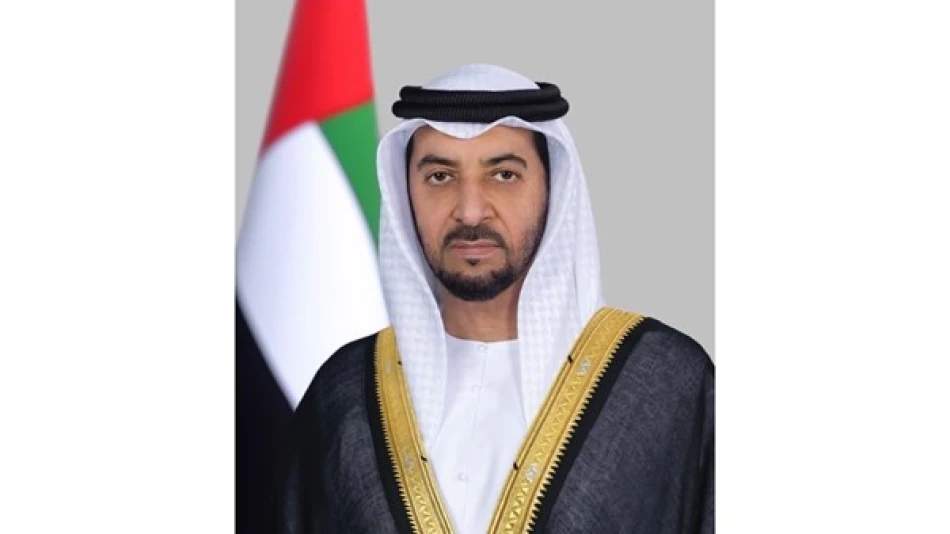
Abu Dhabi Environment Authority Shines at UN Forum in New York
UAE Reinforces Ocean Conservation Leadership at UN High-Level Political Forum
The UAE has reaffirmed its commitment to marine ecosystem protection through a high-profile participation at the United Nations High-Level Political Forum in New York, signaling the Gulf nation's growing influence in global environmental governance. The announcement comes as countries worldwide face mounting pressure to deliver on Sustainable Development Goal 14, which targets ocean and marine resource conservation by 2030.
Strategic Environmental Diplomacy in Action
Sheikh Hamdan bin Zayed Al Nahyan, the Ruler's Representative in Al Dhafra Region, announced the Abu Dhabi Environment Authority's participation in the prestigious UN forum through his official X platform account. The move underscores the UAE's systematic approach to positioning itself as a regional environmental leader, particularly in marine conservation—a critical area given the Gulf's unique marine biodiversity and the country's extensive coastline.
Sheikh Hamdan emphasized that "preserving marine ecosystems is the foundation of environmental sustainability" and represents a strategic pillar that enhances the nation's food and water security. This framing reveals how the UAE views environmental protection not just as a global responsibility, but as a national security imperative.
Beyond Climate Rhetoric: Economic and Strategic Implications
Regional Leadership Positioning
The UAE's proactive stance at the UN forum reflects a broader strategy to cement its role as the Middle East's environmental hub. This positioning complements the country's hosting of COP28 in 2023, where it successfully navigated complex negotiations around fossil fuel transitions while maintaining its energy sector interests. The marine conservation focus adds another dimension to this leadership narrative.
Food and Water Security Calculus
The explicit connection drawn between marine ecosystem health and national food and water security reveals sophisticated long-term planning. As a nation that imports approximately 85% of its food, the UAE recognizes that healthy marine environments are crucial for sustainable fisheries and desalination processes that support its water supply. This approach mirrors Singapore's integrated environmental-security planning model.
Global Context and Comparative Analysis
The UAE's UN forum participation occurs against a backdrop of accelerating ocean degradation worldwide. Recent studies indicate that marine biodiversity has declined by over 50% since 1970, making SDG 14 one of the most challenging targets to achieve. Countries like Norway and New Zealand have made similar high-level commitments, but the UAE's approach is distinctive in its explicit linkage of marine conservation to national security considerations.
Unlike purely conservation-focused initiatives, the UAE's strategy appears designed to attract international partnerships and potentially position the country as a hub for marine technology and research investments. This mirrors the successful model used in renewable energy, where strategic government commitments attracted significant private sector investment.
Market and Investment Implications
The UAE's renewed focus on marine conservation could signal emerging opportunities in blue economy sectors, including sustainable aquaculture, marine biotechnology, and ocean monitoring technologies. The country's sovereign wealth funds have increasingly targeted environmental, social, and governance (ESG) investments, and marine conservation represents a natural extension of this trend.
For international environmental technology companies, the UAE's commitment suggests a potentially lucrative market for marine monitoring systems, sustainable fishing technologies, and coastal protection solutions. The country's track record of translating policy commitments into substantial financial investments makes this announcement particularly significant for sector stakeholders.
Most Viewed News

 Layla Al Mansoori
Layla Al Mansoori






